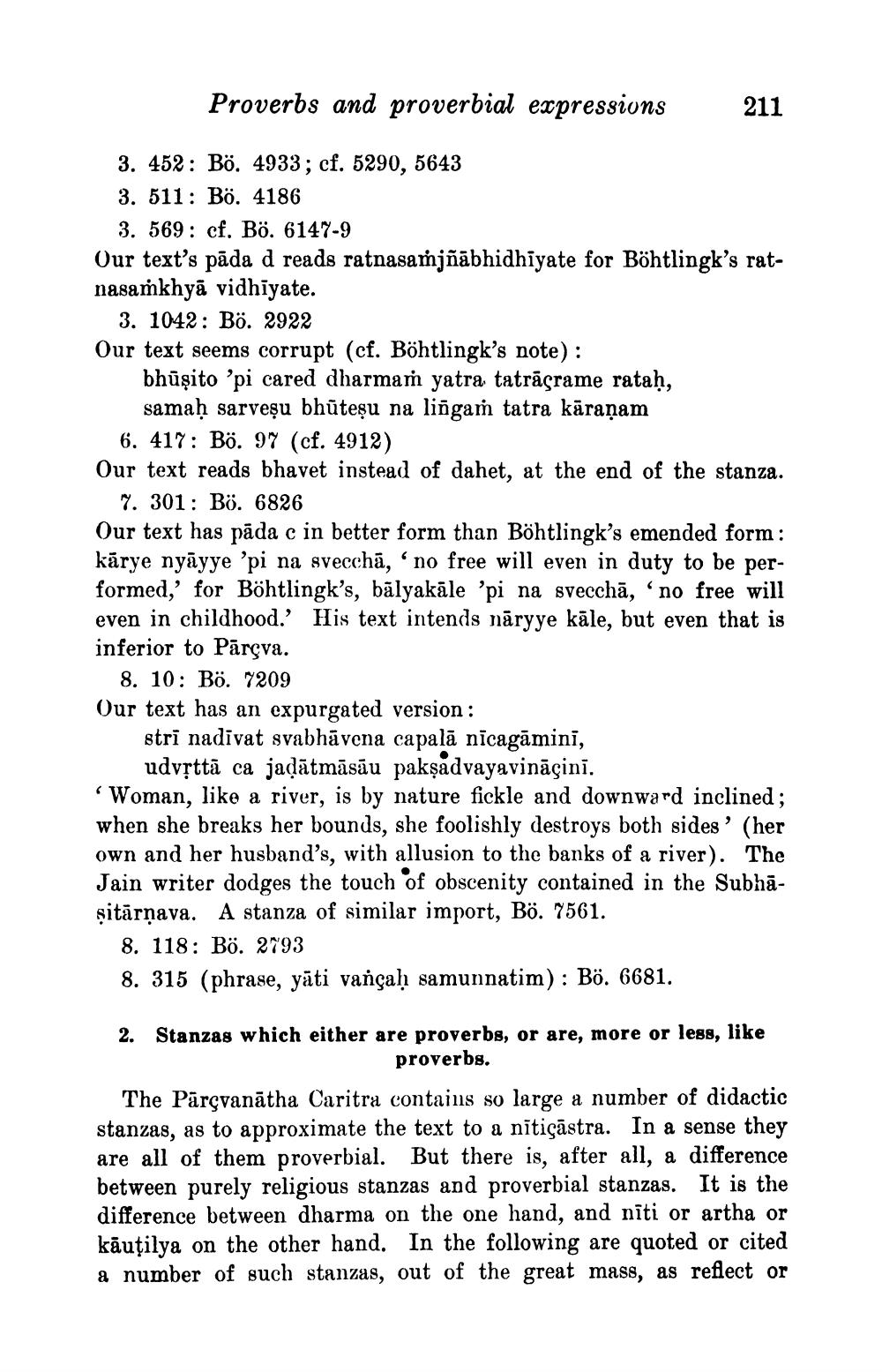________________
Proverbs and proverbial expressions
211
3. 452: Bö. 4933; cf. 5290, 5643 3. 511: Bö. 4186
3. 569: cf. Bö. 6147-9 Our text's pāda d reads ratnasaṁjñābhidhiyate for Böhtlingk's ratnasamkhyā vidhiyate.
3. 1042: Bö. 2922 Our text seems corrupt (cf. Böhtlingk’s note) :
bhūşito 'pi cared dharmaṁ yatra tatrāçrame rataḥ,
samaḥ sarveşu bhūteņu na liñgam tatra kāraṇam 6. 417: Bö. 97 (cf. 4912) Our text reads bhavet instead of dahet, at the end of the stanza.
7. 301: Bö. 6826 Our text has pāda c in better form than Böhtlingk's emended form: kārye nyāyye 'pi na svecchā, 'no free will even in duty to be performed,' for Böhtlingk's, bālyakāle 'pi na svecchā, 'no free will even in childhood.' His text intends näryye kāle, but even that is inferior to Pārgva.
8. 10: Bö. 7209 Our text has an expurgated version:
stri nadivat svabhāvena capalā nīcagāmini,
udvșttā ca jadātmāsāu pakşadvayavināçinī. Woman, like a river, is by nature fickle and downward inclined; when she breaks her bounds, she foolishly destroys both sides' (her own and her husband's, with allusion to the banks of a river). The Jain writer dodges the touch of obscenity contained in the Subhāşitārņava. A stanza of similar import, Bö. 7561.
8. 118: Bö. 2793 8. 315 (phrase, yāti vançaḥ samunnatim): Bö. 6681.
2. Stanzas which either are proverbs, or are, more or legs, like
proverbs.
The Pārçvanātha Caritra contains so large a number of didactic stanzas, as to approximate the text to a nīticāstra. In a sense they are all of them proverbial. But there is, after all, a difference between purely religious stanzas and proverbial stanzas. It is the difference between dharma on the one hand, and niti or artha or kāuţilya on the other hand. In the following are quoted or cited a number of such stanzas, out of the great mass, as reflect or




